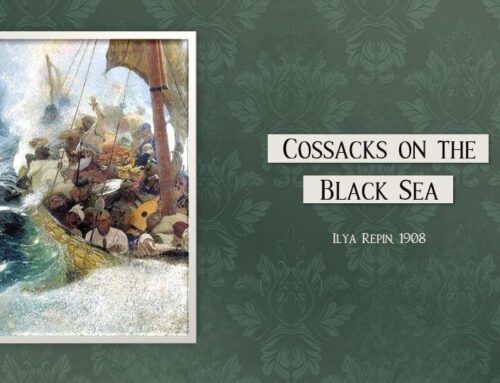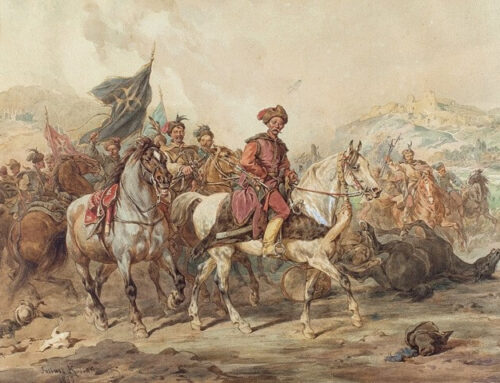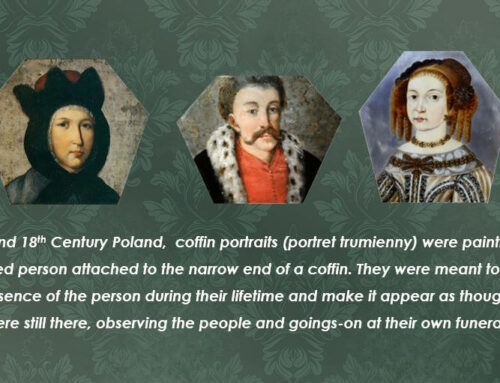Batory, Stefan
King of Poland, Prince (or Grand Duke) of Transylvania, elected King of Poland and reigned from 1576 until his death in 1586. Batory was responsible for forming the winged hussars in the iteration for which they became famous.
De la Gardie, Jakob
Commander of the Swedish army at Kłuszyn.
Dunikowski, Samuel
One of the Polish commanders at the Battle of Kłuszyn.
Karwacki, Jan
Leader of one of the most notorious konfederacjas (a semi-legal rebellion practiced in the Commonwealth). The mutiny was mounted in 1612 by unpaid Crown troops and was considered one of the largest and worst konfederacjas in Commonwealth history because the soldiers preyed on their own countrymen for recompense. The rebels were finally defeated at the Battle of Rohatyn in 1614. Karwacki was captured by future hetman Stanisław Koniecpolski and sent in chains to Koniecpolski’s mentor and future father-in-law, Grand Hetman of the Crown Stanisław Żόłkiewski. Karwacki was later executed, while the rest of the soldiers received their back pay.
Dmitry (False)
A pair of bad actors who sequentially sought rights to the Muscovite throne by claiming to be the long-lost son of Ivan the Terrible, Tsar of Muscovy. Ivan died in 1584. He left two sons, Feodor, who took the throne, and Dmitry, who was exiled and murdered in 1591. Feodor died in 1598, and Boris Godunov ascended the throne, only to die in 1605.
The First False Dmitry, claiming he had escaped death, appeared in 1604 and was crowned in 1605 after Godunov’s death, only to be murdered and his remains fired from a cannon in Red Square. Tsar Wasyl Szujski IV became tsar and was challenged by another False Dmitry who, with an army consisting of Polish adventurers (Aleksander Lisowski among them), Cossacks, and Russian boyars, besieged Moscow in 1609, only to fall back.
Lisowski, Aleksander Józef
A Lithuanian nobleman and soldier who led a konferacja (a semi-legal rebellion practiced in the Commonwealth) for unpaid wages. He also took part with the rebels against the royalists in the “Zebrzydowski Rokosz” (Zebrzydowski Rebellion) in 1607-1609. Lisowski eventually became the leader of a band of mercenaries that fought on behalf of the Commonwealth. They took their pay in the form of pillage. Lisowski and his men were opportunistic, often preying on their own countrymen. Because they were skilled, fearsome fighters, the Crown looked the other way. Lisowski’s men adopted the name “Lisowczycy,” which means lost men, forlorn hope, or chorągiew elearska (company of elears), after his death in 1616. They were eventually hunted down and executed and later officially disbanded by the Sejm (the lower house of Polish Parliament).
Potocki Family
Powerful, influential Polish magnate family. Stefan Potocki was part of the Moldavian Magnate Wars and was defeated with his army July 1612. He later died in Ottoman captivity. Hetman Stanisław Żόłkiewski wrote in his memoirs that Jakub Potocki (Castellan of Kamieniec) was ordered by the king to prepare ladders for the assault on Smoleńsk and became one of the first men up on the great fortress’s wall before it was breached and taken by the Poles on June 11, 1611.
Szujski, Dymitr
Brother to the tsar, and commander of the Russian army at Kłuszyn. Captured and died in Poland 1613.
Szujski, Tsar Wasyl IV
Tsar of Muscovy from 1606 to 1610. Stanisław Żόłkiewski delivered Wasyl IV to the King of Poland in Warsaw after the Battle of Kłuszyn in 1610. Wasyl IV died in Poland two years later.
Vasa, Władysław IV
Son of Zygmunt III, was elected Tsar of Russia July 27, 1610 at the age of fifteen. Because Zygmunt coveted the throne for himself and consequently lost the support of the boyars who elected his son, Prince Władysław never assumed the throne, though he held the title until he relinquished it in1634. Władysław followed in his father’s footsteps and became King of Poland/Grand Duke of Lithuania from 1632 until his death in 1648.
Vasa, Zygmunt III
King of Poland elected in 1587 and reigned until his death in 1632. Zygmunt was born in Sweden to King John III and his wife, Katarzyna Jagiellonka of Poland, while his parents were held captive. He was raised Catholic and remained so throughout his life. He held the title of King of Sweden until 1599 when he was deposed by his uncle, King Charles IX Vasa, though he would not give up his claim to the Swedish throne. In fact, he went to war with Sweden to reclaim his crown. The Polish-Swedish War would continue intermittently until 1629 (the term “Polish-Swedish Wars” is a broad term that includes a series of wars between the two countries from the sixteenth century until the eighteenth century). Zygmunt III was criticized for his Swedish ambitions at Poland’s expense. He was also criticized for warring with Muscovy (the Polish-Muscovite War, also known as the “Dymitriads”) during his reign.
King Zygmunt attempted to institute a number of reforms which the Polish nobility (the szlachta) viewed as a threat to their power and their “Golden Freedom.” Conflict between the King and nobility led to the Zebrzydowski Rokosz (Zebrzydowski Rebellion).
Zebrzydowski, Mikołaj
A Polish magnate from Sandomierz and the Palatine of Kraków. He led a rebellion of nobles against King Zygmunt III known as the “Zebrzydowski Rokosz” (Zebrzydowski Rebellion) in 1607-1609, in which Aleksander Lisowski also participated on the rebels’ side. The rebellion stemmed in part from the king’s attempts to expand his power, which the nobility viewed as an erosion of their own power. The rebels were defeated at Guzów by the king’s forces and later pardoned without suffering loss of privilege or assets. The conflict was deemed a stalemate, with neither side making any advances. The rebels were unable to wrestle power from the king, and the king was unable to usurp any of the nobility’s power over the monarchy.
Żόłkiewski, Stanisław
A Polish magnate and diplomat who was lauded as one of Poland’s most brilliant generals, best known for victories such as the Battle of Kłuszyn. He served as Crown Field Hetman, and in 1613, the king appointed him Grand Hetman of the Crown, Poland’s highest military ranking and a lifetime position. Żόłkiewski had an uneasy relationship with the king (many thought he should have been awarded Grand Hetman of the Crown far sooner than 1613 and that the king withheld it from him purposely). Żόłkiewski had negotiated an agreement with the Muscovite boyars and entered Moscow in 1611 prepared for King Zygmunt III’s son, Prince Władysław IV, to take the throne. The king thwarted this plan, which ultimately lost Poland the opportunity to gain Muscovy’s throne. Żόłkiewski penned his memoir, Expedition to Moscow, explaining events as he experienced them—some say in an attempt to tell his side of the story. Żόłkiewski would continue his brilliant military career engaged in numerous campaigns on the Commonwealth’s southern and eastern borders, eventually losing his life at the Battle of Cecora in 1620. He was in his 70s.









Leave A Comment